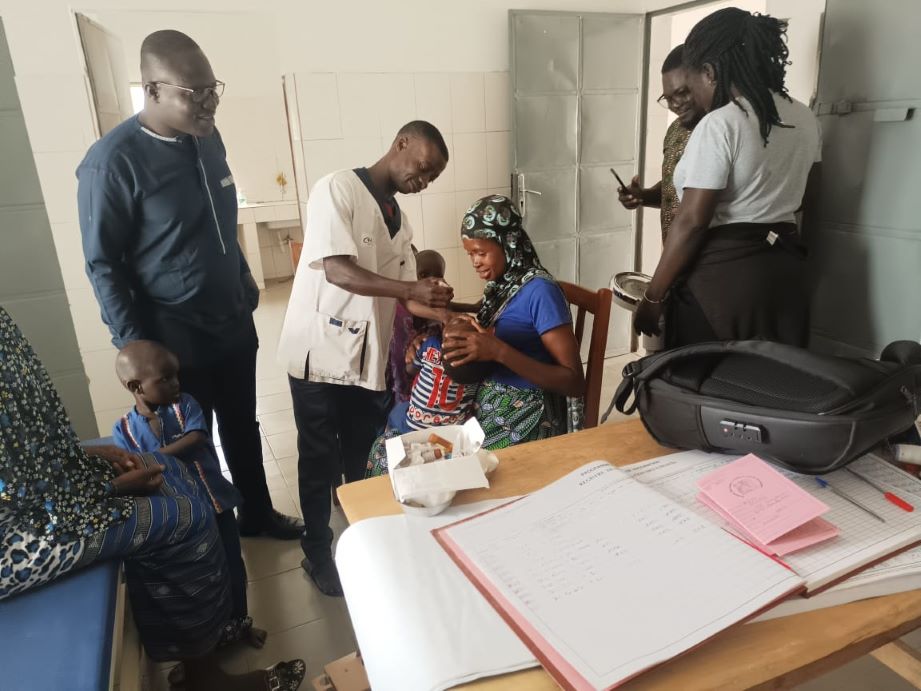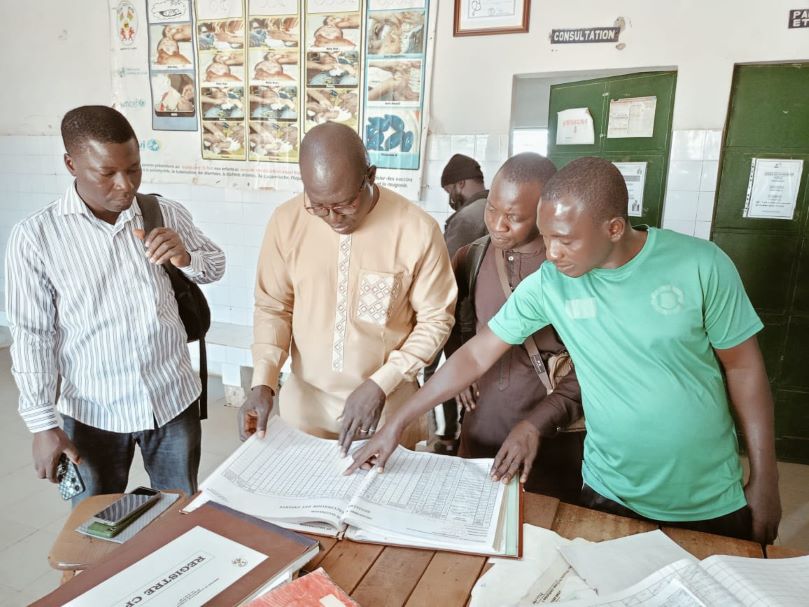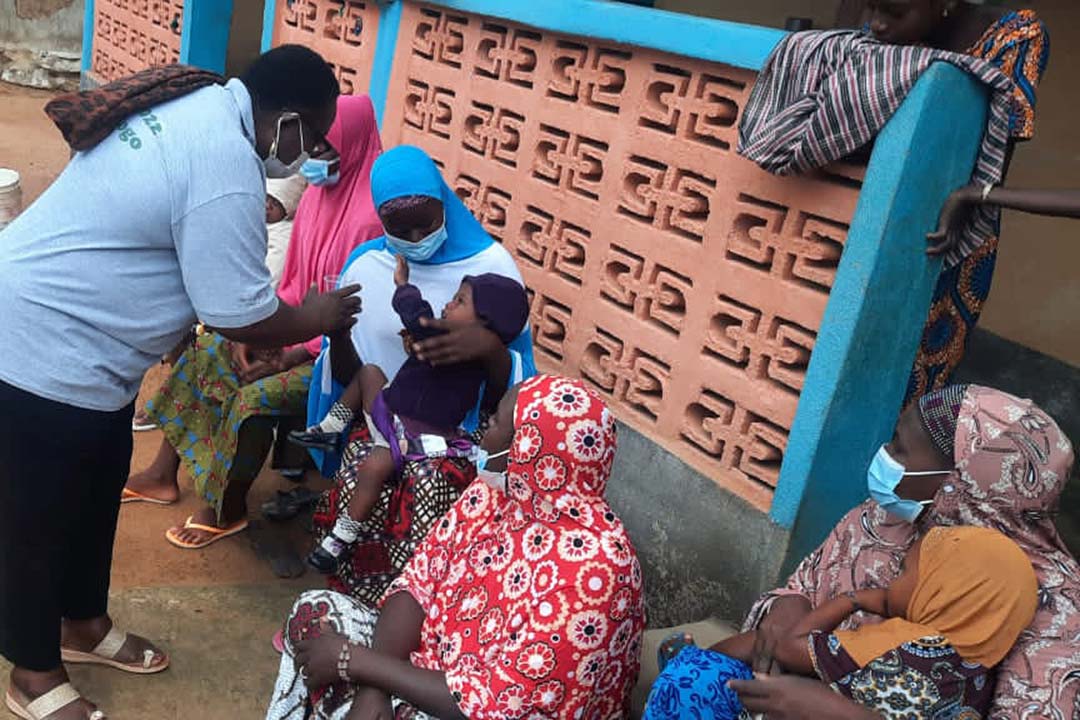This Togo vaccine champion is transforming community perceptions of immunisation
In Binah Prefecture, northern Togo, local leader Augustin Kola is helping to close the vaccination gap.
- 19 February 2025
- 4 min read
- by Nephthali Messanh Ledy

In recent years, Binah Prefecture in northern Togo, which is home to a population of just over 84,000 people, has managed to significantly expand immunisation access. Between 2022 and 2024, coverage for the third dose of the basic pentavalent vaccine leapt from 79.9% to 110.4%, an admittedly improbable-sounding number that simply indicates that the number of eligible children was greater than assumed previously. Coverage with the BCG vaccine – which protects children from tuberculosis – rose from 69.7% to 107% in the same period.
Driving the change was an initiative led by Francophone African civil society organisation OAFRESS, which helped identify and vaccinate 985 children who had not received all their required doses. Nine hundred of those children were partially vaccinated, and 85 had never received a single dose.
The success of that initiative, in turn, has depended on the dedication of local champions like Augustin Kola, who has been an OAFRESS ‘champion’ since 2019.
Meet Kola, an OAFRESS ‘champion’
As the coordinator of the technical secretariat for the Platform of Civil Society Organizations for Vaccination and Immunization (POSCVI) in Togo, Kola has a crucial role to play in vaccination efforts in the region. Active both in the field and in decision-making spaces, he engages communities, raises awareness among families and supports health authorities in organising vaccination campaigns.
“For Binah, we organised planning meetings with the district health team to define our support strategy and identify key stakeholders to involve. We then determined priority areas and trained community actors responsible for data collection. They went door to door, identifying children who had never received a dose or had incomplete vaccinations,” explains Kola.
This meticulous effort in data collection and community engagement has paid off. Today, the results are evident on the ground. “In our district, for over three years, we have seen a significant increase in vaccination coverage rates for several vaccines under the Expanded Programme on Immunization (EPI),” confirms Dr Wiyao Katchoou, chief medical officer and prefectural director of health in Binah.
Have you read?
More than just numbers
Kola’s work goes beyond numbers – it is transforming how communities perceive vaccination. “The OAFRESS champion has been a tremendous help. We are in direct contact with the population, but we sometimes lack effective strategies to convince hesitant parents. Thanks to Mr Kola’s support, we are gradually bringing reluctant parents on board. He is personally very active in the field,” says Laima Salifou, a community health worker dedicated to engaging families in vaccination efforts.

Credit: Nephthali Messanh Ledy
The role of an OAFRESS champion extends beyond community outreach – it is also a strategic engagement. “A champion serves as the voice of OAFRESS at the national, regional and global levels, advocating for vaccination and strengthening health systems (RSS) in member countries. To do this, they develop an operational action plan that enables them to participate in key decision-making meetings on health and vaccination, as well as integrate decision-making bodies,” explains Kola.
Thanks to this dual role, Kola supports local health authorities in coordinating vaccination efforts and actively participates in meetings where campaign results are analysed. His work directly contributes to improving vaccination coverage in Binah.
The commitment of other community actors, including Papa Champions, has also played an important role in this mobilisation, local actors say. These respected local figures serve as influential messengers, helping to raise awareness and convince hesitant parents about the importance of vaccination.
Persistent challenges
Despite these achievements, several challenges remain. Misinformation and vaccine-related rumours continue to hinder the efforts of health workers. “It is essential to strengthen the training of community actors on the importance of vaccination and adherence to the immunisation schedule. Additionally, intensifying local communication through community dialogues is crucial,” emphasises Dr Katchoou.
One of the biggest challenges remains the lack of financial resources, which limits the ability of vaccination champions to carry out their work effectively. “Our biggest challenges are financial. To fulfil our responsibilities as champions, we need resources that are not always available when we need them,” explains ola. He calls for support from committed organisations and individuals willing to help improve vaccine access.
Despite these obstacles, Binah’s experience demonstrates that the involvement of well-trained and mobilised local actors can make a real difference. The OAFRESS champion model, which combines grassroots engagement with political advocacy, presents a promising approach to sustainably improving vaccine access in Togo and beyond.








